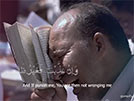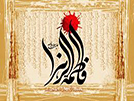3. The Five Types of Decrees
- Details
- Hits: 3983
3. The Five Types of Decrees
All Islamic injunctions fall within the five main categories of laws: wÄjib, mustahab, jÄ’iz, makrÅ«h, and harÄm. There are other sub-divisions within these five decrees.
1. WÄjib: means obligatory, necessary, incumbent. An act which must be performed. One will be punished for neglecting a wajib act, e.g., the daily prayers.
IhtiyÄt wÄjib: Sometimes you might see the term “ihtiyÄt wÄjib” in the decrees of the mujtahids. It means “precautionarily obligatory” and its significance is the same as that of the wÄjib with one difference: wherever the mujtahid says that “it is precautionarily obligatory,” you have the option of leaving his opinion in that particular problem and following the opinion of the second best mujtahid provided the second mujtahid has a different opinion.
WÄjib is also divided into two: ‘ayni and kifÄ’i:
WÄjib ‘ayni means an obligation which is imposed on individual Muslims, e.g., the daily prayers. No one can do this duty for someone else.
Whereas wÄjib kifÄ’i means an obligation which is imposed on the Muslim community as a whole; and if it is fulfilled by one or more individuals, then the rest of the community is no longer required to do that. For example, a dead Muslim must be buried in the proper Islamic way. This is a duty imposed on the Muslim community collectively; if some people do that, then others are not responsible; but if no one does that, then the entire community is answerable to God.
2. Mustahab, also known as sunnat, means recommended, desirable, better. It refers to the acts which are recommended but not wajib. If one neglects them, he will not be punished; however, if one performs them, he will be rewarded.
3. JÄ’iz means permitted, allowed, lawful. An act which is permitted and lawful; there is no reward for performing it nor any punishment for neglecting it, e.g., drinking tea.
HalÄl & MubÄh: There are other words which reflect the same meaning as jÄ’iz but with a different connotation: “HalÄl” also means permissible acts or things, but it is used mostly for permissible things rather than actions. For example, the term “halÄl meat” is used for the meat whose consumption is permissible in Islam. Similarly, “mubÄh” means permissible, but it is exclusively used for things which are lawfully yours or under your control as opposed to “ghasbi — usurped”.
4. Makrūh means reprehensible, disliked, discouraged. An act which is disliked by Islam but not haram. If one does a makrūh act, he will not be punished; however, if he refrains from it, then he will be rewarded.
5. HarÄm means forbidden, prohibited. An act from which one must abstain. If someone performs a haram act, he will be punished either by the Islamic court or in the hereafter or both.
* * *
This lesson has been written by Sayyid M. Rizvi.
Some parts have been adopted from his An Introduction to the Islamic SharÄ«‘a.











